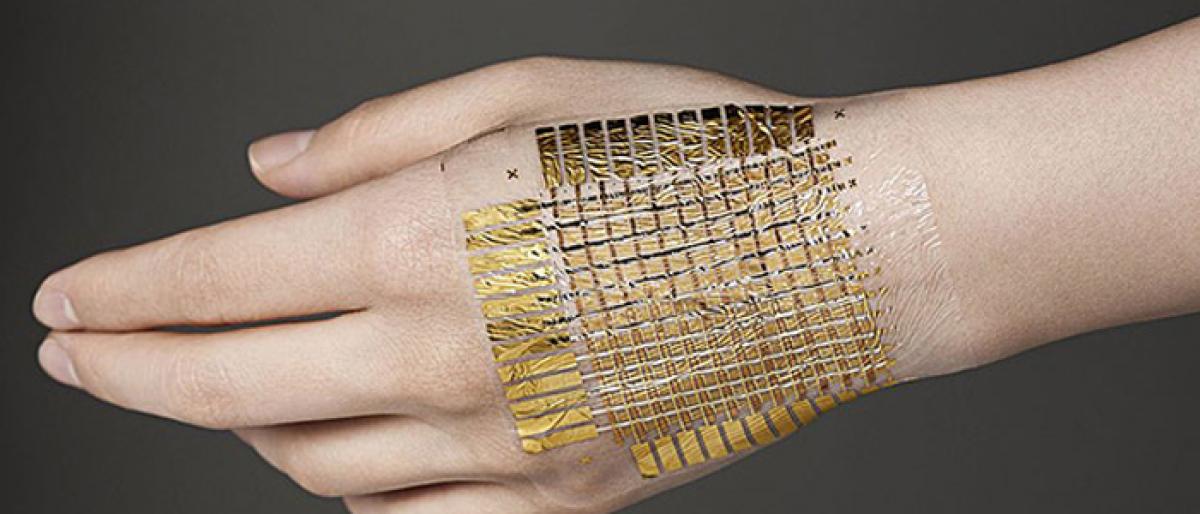What is E-Skin?

Robotics engineers likewise rely on skin-like tactile feedback as a tool to improve robots\' dexterity and ability to sense their surroundings; the ability to recognize physical contact and respond accordingly is essential to establish natural interactions between humans and robots.
Robotics engineers likewise rely on skin-like tactile feedback as a tool to improve robots' dexterity and ability to sense their surroundings; the ability to recognize physical contact and respond accordingly is essential to establish natural interactions between humans and robots.
Our skin, however, is a sophisticated network of receptors responding to multiple mechanical and thermal stimuli, while being elastic and resilient against impacts — such complexity cannot be perfectly replicated by an artificial equivalent. However, progress in sensing technologies and flexible electronics has already led to the realization of simpler electronic prototypes that have effectively provided prosthetic limbs and robotic arms with a rudimentary sense of touch, according to Nature.com.
Researchers in Japan have developed "electronic skin" with an organic circuit that can be worn on the human body. It is 10 times thinner than a skin cell and lighter than a feather. It has many potential uses including monitoring your health, it could be worn as an electronic tattoo or in the future generate a television picture on your hand, according to BBC.
Flexible electronic circuits mimicking the sensory capabilities of biological skin are being developed to restore the sense of touch in artificial limbs and robotics. This focus discusses the mechanical and electronic performance that electronic skin must reach to make a substantial impact in these applications.
Digital technology like Artificial Intelligence (AI) also stepped into the healthcare sector in 2017 with a new vigour, helping mine medical records, design treatments or find ways to discover drugs faster. Scientists at South Korea's Daegu Gyeongbuk Institute of Science and Technology developed an electronic skin based on AI that can keep a track of heart rate, respiration, and muscle movement, which works just like a smartwatch.
AI was also used to help in the early detection of melanoma skin cancer. The technology, developed by the University of Waterloo in Canada employs machine-learning software to analyse images of skin lesions and provides doctors with objective data on telltale biomarkers of melanoma, which is deadly if detected too late, but highly treatable if caught early.








